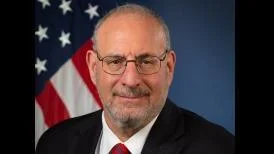Mayor Jacob Frey | Mayor Jacob Frey Official website
Mayor Jacob Frey | Mayor Jacob Frey Official website
The Biden-Harris administration announced new actions that will help working families, homeowners and renters save money. The actions were announced while building industry leaders who focus on emission reductions were convened at the Getting to Zero Forum in Minneapolis, co-hosted by NBI and RMI to recognize Minnesota’s leadership on building decarbonization.
“NBI and RMI selected the City of Minneapolis as the host of the Getting to Zero Forum to recognize their leading efforts to advance zero energy and low carbon building codes and building performance standards,” says Ralph DiNola, CEO of NBI, “These efforts support not just energy savings for citizens and businesses, but health and wellbeing for individuals and the planet. We applaud Minneapolis and Minnesota for doing their part to support and implement federal policies such as these announced today.”
The Department of Housing and Urban Development (HUD) and the United States Department of Agriculture (USDA) proposed plans yesterday to adopt the latest model building energy codes for federally-supported new homes to improve their performance and efficiency saving families over 35% on energy costs.
HUD also announced more than $830 million in funding for the Inflation Reduction Act’s Green and Resilient Retrofit Program that directly invests in energy efficiency and emissions reductions, clean energy, low embodied carbon materials, and climate resilience strategies across HUD-assisted multifamily housing.
These efforts build upon President Biden’s National Initiative to Advance Building Codes to incorporate climate risk and mitigation into federally supported housing and help American families stay comfortable in the wake of extreme temperatures and volatile weather. Municipalities, like Minneapolis, are already leading the way on low-carbon new construction.
Minneapolis Mayor Jacob Frey and the City of Minneapolis have been incentivizing building decarbonization through the Green Cost share program for the last eight years, with 67% of the funding going to Environmental Justice communities known as Green Zones, well exceeding the Justice 40 goal.
“Climate work is not only about reducing GHG emissions, it’s also about people, said Kim Havey, Minneapolis Health Department’s Director of Sustainability and White House Environmental Justice Advisory Council member (WHEJAC). “Our city recently created a Climate Equity Plan, with the goal of cutting in half by 2030 the number of households that have a high energy burden over 4%. That’s about 10,000 households in Minneapolis, 75% of which are people of color.”
“This is the administration delivering on climate, equity and environmental justice,” said Ben Evans, Federal Legislative Director, U.S. Green Building Council. “Building energy codes may not be sexy, but they produce huge benefits, and in this case those benefits will flow to the low-income communities that need it most. The administration’s efforts will make these homes healthier and more comfortable, while significantly reducing greenhouse gas emissions.”
“Energy efficiency is the bedrock of a decarbonized economy helping lower energy and economic burdens. RMI is excited to see President Biden and his Administration take these additional steps to save low-income and working families money on energy bills and reduce pollution coming from buildings,” says Srinidhi Sampath-Kumar, Program Manager of Affordable Housing and Western region at RMI. “HUD’s Green and Resilient Retrofit Program supported by the IRA will deliver essential investments in some of the nation’s housing stock serving the most vulnerable Black and Brown communities and millions of low-income households across the country. The proposed energy codes update will also reduce energy consumption by 35% over previous, out-of-date standards and save low-income homeowners and residents thousands of dollars on utility bills every year. We look forward to this standard being swiftly finalized and to working with the White House, HUD, and other agencies to ensure all federally-backed homes provide families with energy-efficient, healthy, and affordable places to live.”
“The International Code Council applauds the Administration and Agencies for this significant action in furtherance of the National Initiative to Advance Building Codes. Updating to the latest codes will enhance the resilience, environmental and economic benefits for households that rely on HUD and USDA funding and the American people generally,” says Ryan Colker, Vice President, Innovation at the International Code Council.
“We’re now a big step closer to ensuring that builders of millions of new homes don’t leave residents with uncomfortable drafts and steep utility bills. This step is way overdue, and now we want to see them act with urgency to finalize it,” said Lowell Ungar, director of federal policy at the American Council for an Energy-Efficient Economy.
“Addressing the energy use and climate emissions from our nation's buildings is critical to achieving net zero emissions by 2050. Updating to the latest building energy codes is a win-win, for homeowners, business owners, and the climate,” said Lauren Urbanek, Director of NRDC’s Clean Buildings Program. “Constructing new buildings to be efficient from the start will save families significant money on their energy bills for years to come, while also reducing the climate pollution emission from those buildings.”
Original source can be found here.





 Alerts Sign-up
Alerts Sign-up